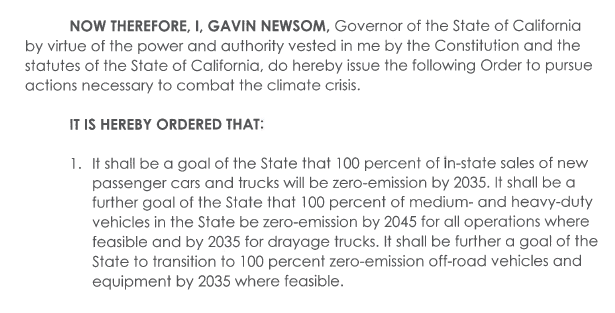Just finished a meeting of the Independent Emission Market Advisory Committee (IEMAC) @CaliforniaEPA. 1/18
calepa.ca.gov/climate/iemac-…
calepa.ca.gov/climate/iemac-…
Thanks to my fellow IEMAC members, Chair @DallasBurtraw, Vice Chair Ann Carlson, Meredith Fowlie, Ross Brown, and our newest member, @TheKropke, for a great conversation. (Welcome, Jennifer!) 2/18
One of my priorities for this year is to better engage the public in the Committee's work advising on California's cap-and-trade program and other state climate policies. 3/18
To that end, we're working on a Committee handbook that will explain the process, including opportunities for written and oral public comments. Meanwhile, this thread will give a quick recap of today's meeting and the Committee's next steps. 4/18
Each year the IEMAC identifies a set of topics for 2-person subcommittees to work on in between public meetings. Each subcommittee develops material that is submitted for full Committee approval as a chapter in the IEMAC's annual report. 5/18
Today, we decided to form five subcommittees for the 2020 report: 6/18
(1) Transportation sector issues, including a special focus on ports and the broader movement of goods (not just people) (Ann Carlson and Jennifer Kropke). 7/18
(2) Cap-and-trade auction mechanics, including potential changes to the priority order in which allowances are sold in under-subscribed auctions (Meredith Fowlie and Ann Carlson). 8/18
(Auction mechanics are a favorite topic of mine, as my poor climate law and policy students know from their homework assignment last quarter.) 9/18
(3) An review of free allowance allocations provided to mitigate emissions leakage in the oil refining sector, as well as the impact of any potential changes to free allocation and program revenues on high-quality careers (Jennifer Kropke and Dallas Burtraw). 10/18
(4) Options for adjusting cap-and-trade allowance supplies and potential mechanisms for determining the need for action (Dallas Burtraw and me). 11/18
(5) The balance of cap-and-trade and regulatory measures in the upcoming 2022 Scoping Plan process, with an emphasis on trade-offs affecting affordability issues (Meredith Fowlie and me). 12/18
The IEMAC's non-voting member, Ross Brown, will also consult with individual subcommittees to provide input and feedback while maintaining the independence of his office, @LAO_CA. 13/18
(Please note that these descriptions reflect my personal notes—not a formal statement from the Committee—so they won't necessarily capture all the relevant nuances or final directions each subcommittee might take.) 14/18
For next steps, CalEPA staff will begin an effort to schedule our next virtual meeting, with a tentative target of August. When it's ready, the official meeting notice will be published here: 15/18
calepa.ca.gov/climate/iemac-…
calepa.ca.gov/climate/iemac-…
The IEMAC anticipates hosting at least two more virtual meetings this calendar year, with the final Committee report approved at the final meeting of the year. 16/18
In our meeting today, Chair Burtraw indicated that @AirResources plans to begin its public process for the 2022 Scoping Plan update in early 2021, which means that the 2020 IEMAC report will be complete in time to be considered in that process. 17/18
That's a wrap! Looking forward to working with the rest of the Committee and hearing from interested members of the public. 18/18
• • •
Missing some Tweet in this thread? You can try to
force a refresh






